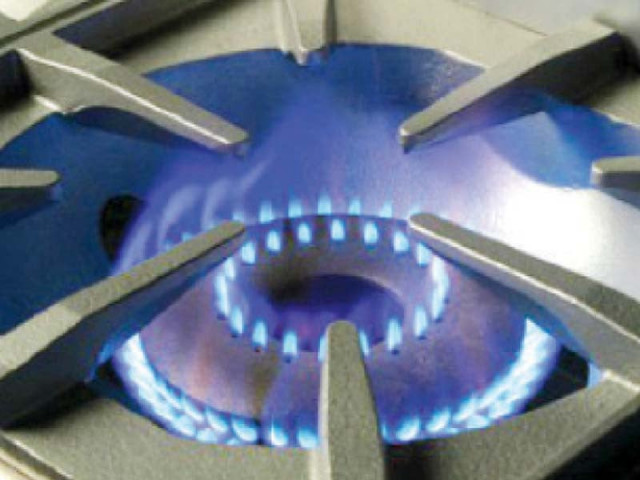Quarterly gas price revisions likely
Govt set to adopt new model designed to improve financial health of utilities

The government is set to give the go-ahead to switch over to a new model of quarterly gas price notifications instead of the current six monthly announcements of tariff revisions.
The new proposed mechanism for the gas sector is in line with the model followed in the power sector and is designed to give a boost to the financial health of public gas utilities and tackle the challenge of mounting circular debt.
Gas companies are also seeking approval of the government to automatically pass on the energy component cost to consumers, like the way electricity firms do.
Currently, the Oil and Gas Regulatory Authority (Ogra) holds public hearings and then declares its decision on the revenue requirement of gas utilities, which is sent to the federal government for notifying end-consumer prices.
The government notifies gas tariffs twice a year to apply it to different consumer categories. Cross-subsidy is also enforced in the gas sector, meaning that some consumers bear the cost burden to subsidise gas prices for low-income groups.
For the current year, the revised gas tariffs have been notified, effective from July 1, 2025.
Sources said that the Petroleum Division had asked Ogra to propose amendments to regulations, which would result in quarterly gas tariff revisions instead of biannual announcements.
They said that the regulator was currently working on the proposed amendments and it would share its report with the federal cabinet before the end of November.
According to officials, the gas utilities have also asked the government to adopt the monthly fuel cost adjustment mechanism, which is already being followed in the power sector.
Under this mechanism, the National Electric Power Regulatory Authority (Nepra) conducts public hearings and the impact of fuel cost changes is passed on to electricity consumers every month. This is an automated arrangement with no involvement of the federal government.
Sui Northern Gas Pipelines Limited (SNGPL) and Sui Southern Gas Company (SSGC) are the two public gas utilities that receive gas from exploration and production companies and then distribute it to end-consumers. They emphasise that the government should now follow the power sector's model to automatically pass on the impact of gas cost component to consumers every month.
The cost of gas makes up around 90% of total consumer prices. Therefore, the gas companies say the government should allow the regulator to shift the impact onto consumers on a monthly basis.
According to the Petroleum Division, the late notification of revised gas prices dents the financial health of public utilities and that is also the reason for the increase in circular debt.
Additionally, the government is working on doing away with cross-subsidy in the gas sector and in its place it will declare a budgeted subsidy. At present, the exploration and production companies have to recover billions of rupees from the gas utilities.
The issue was taken up during previous negotiations with the International Monetary Fund (IMF) under the Resilience and Sustainability Facility in a bid to replace cross-subsidy with a direct subsidy commensurate with consumer income levels under the Benazir Income Support Programme (BISP).
Earlier, the Petroleum Division informed the cabinet that they were engaged with the IMF and the new system was likely to be developed by 2026. It said that it had already hired advisory firm KPMG and a dedicated group had been formed to examine the replacement of cross-subsidy as part of efforts to revitalise the gas sector.
Residential consumers were benefitting from a cross-subsidy of over Rs150 billion, financed through the imposition of higher tariffs on captive power plants, industrial and commercial consumers.
In alignment with reforms agreed with the IMF, a levy has been slapped on captive power plants. As a result, gas prices for captive power have increased, consumption has declined and the ability to cross-subsidise residential consumers has gone down.




















COMMENTS (1)
Comments are moderated and generally will be posted if they are on-topic and not abusive.
For more information, please see our Comments FAQ